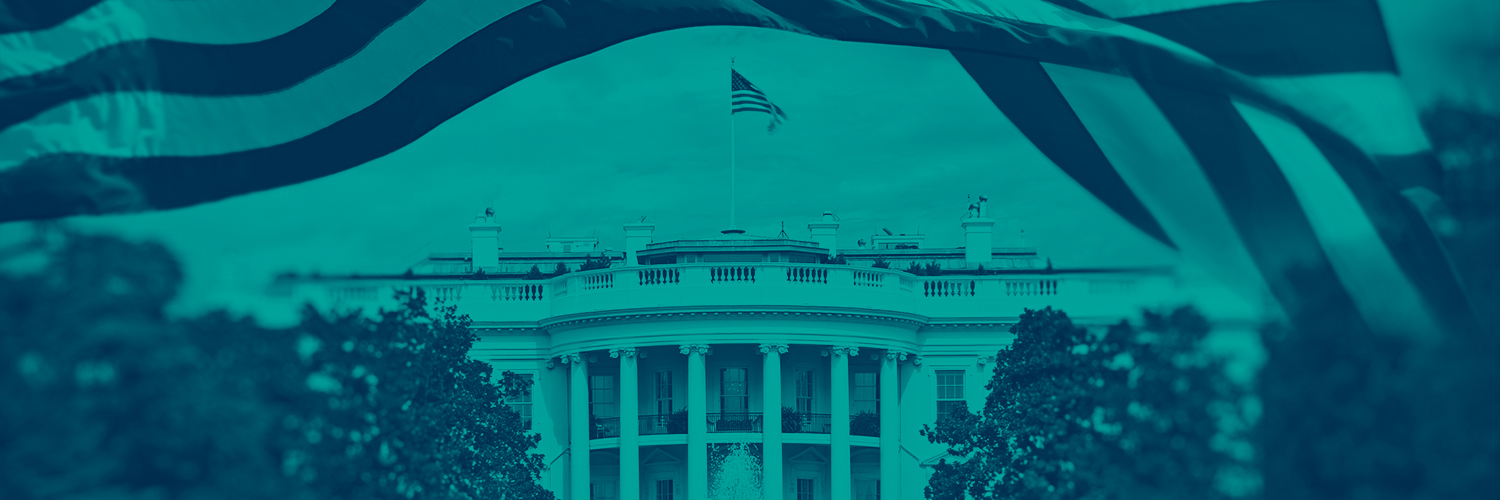
American Statecraft Program
@CEIPStatecraft
Insights on Statecraft from @CarnegieEndow. Clear eyed about the world. Meeting the urgent need for a disciplined U.S. foreign policy.
Has Trump ushered in a new era of foreign policymaking, or beneath the bluster, is it business as usual? In our latest newsletter, we asked @CarnegieEndow scholars: What sets Trump's foreign policy apart this term? See more – and subscribe for our latest foreign policy…
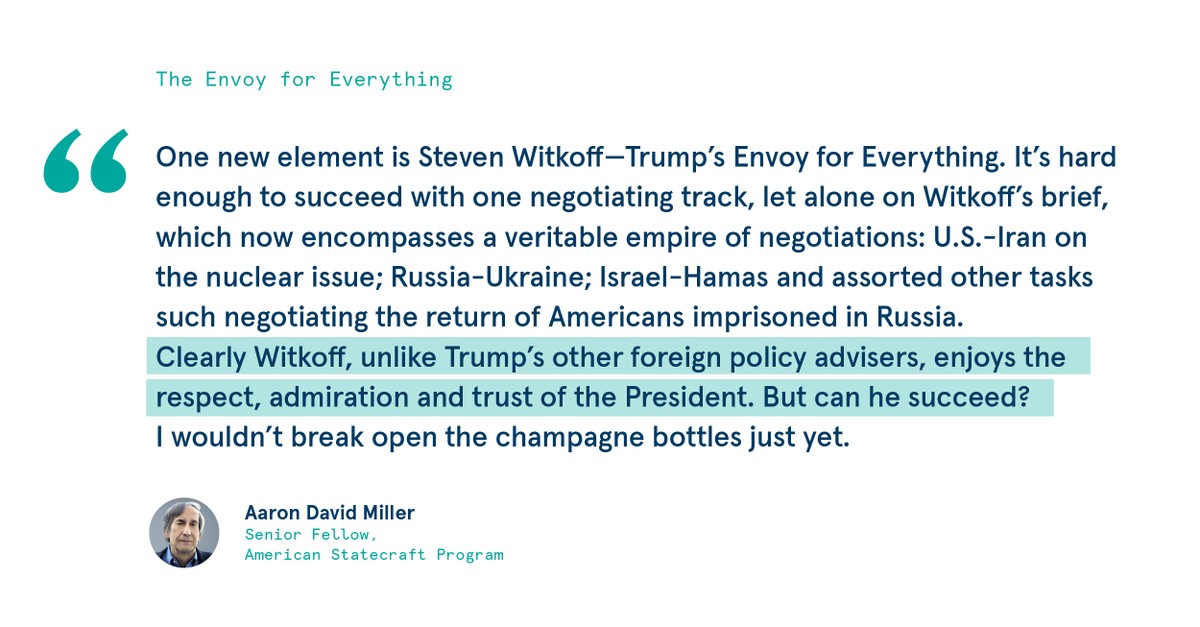
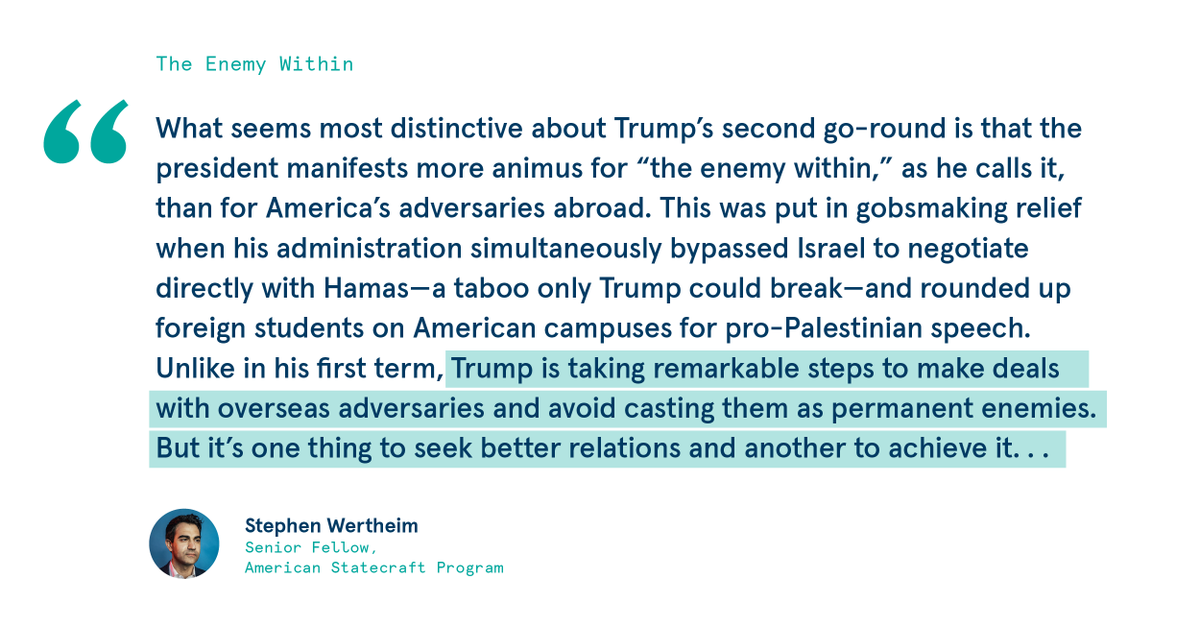
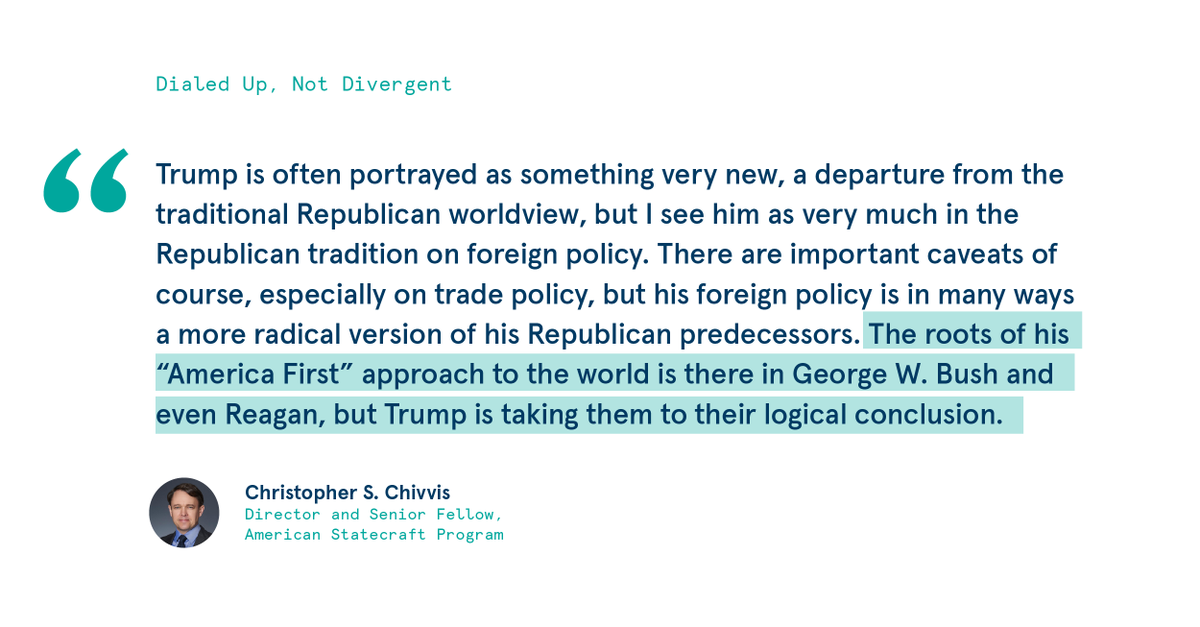
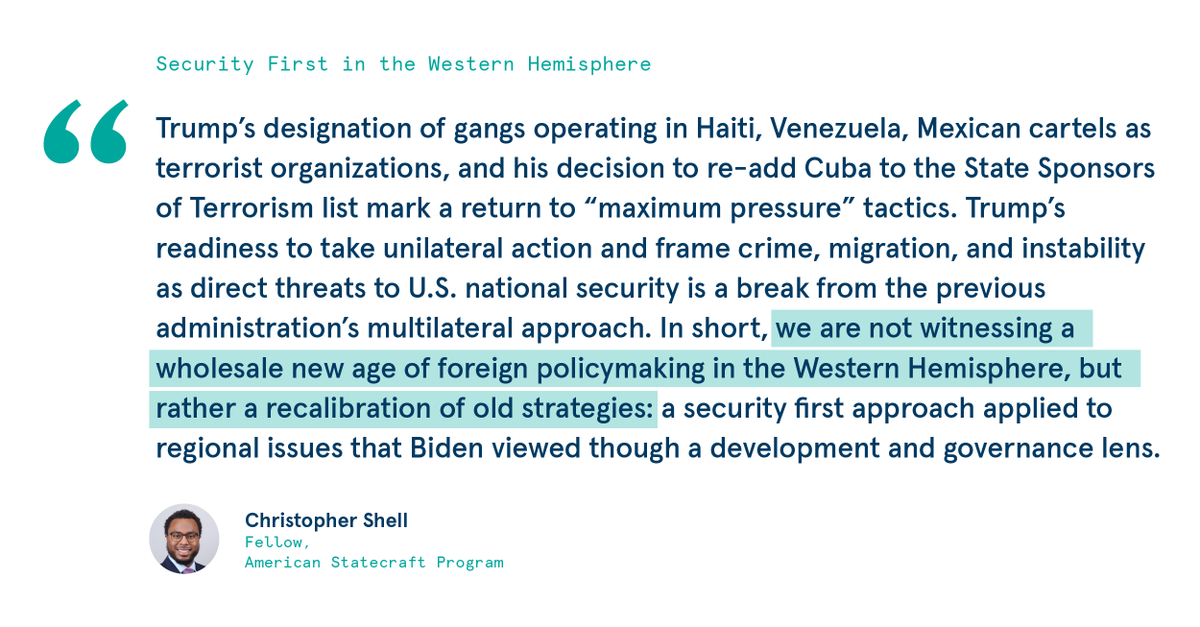
Drone threats make the UAE and Saudi Arabia the wrong homes for critical AI data centers, writes @CarnegieEndow's @CChivvis of @ceipStatecraft and @SamWinterLevy. wapo.st/4f8El44
Read why Trump's AI deals with the Gulf carry physical security and strategic risks: washingtonpost.com/opinions/2025/…
In @nytopinion I write that President Trump is failing to be a peacemaker. He is not on track to reduce America’s military involvement in the world and is keeping the United States in a position that invites more wars, potentially much larger ones. Gift link below.
Great fun to talk with @CChivvis about Trump 2 at the 6-month mark, and the knowns and unknowns of this administration's foreign policy so far: youtu.be/TvXCbfwQfKM?si…
If Trump's AI deals in Saudi Arabia and the United Arab Emirates bear fruit, who will protect economically vital data centers from Iranian drones and missiles: America, first?
Trump's deals in the Gulf put AI infrastructure in locations vulnerable to attack — at a time when the risk from cheap drones is intensifying, @CChivvis and @SamWinterLevy write in the @washingtonpost.
Fun time with @stephenwertheim on the ways Trump’s foreign policy is but a simulacrum of America First.
President Trump wants to be a "peacemaker and unifier." Six months in, is he really? @CEIPStatecraft's @stephenwertheim breaks down lessons learned from Trump's second-term foreign policy so far, with @CChivvis on the latest Pivotal States: youtu.be/TvXCbfwQfKM?si…
In today's #MustRead, @stephenwertheim argues that Trump’s erratic China policy is weakening U.S. influence—and that a Cold War-style rivalry is neither necessary nor sustainable. The smarter path: coexistence and cooperation, not confrontation. More @FT ft.com/content/b324ad…
President Trump wants to be a "peacemaker and unifier." Six months in, is he really? @CEIPStatecraft's @stephenwertheim breaks down lessons learned from Trump's second-term foreign policy so far, with @CChivvis on the latest Pivotal States: youtu.be/TvXCbfwQfKM?si…
Trump's deals in the Gulf put AI infrastructure in locations vulnerable to attack — at a time when the risk from cheap drones is intensifying, @CChivvis and @SamWinterLevy write in the @washingtonpost.
NEW Pivotal States podcast episode out today: @CChivvis and @stephenwertheim talk Trump 2.0's foreign policy record, six months in. Check it out! youtube.com/watch?v=TvXCbf…
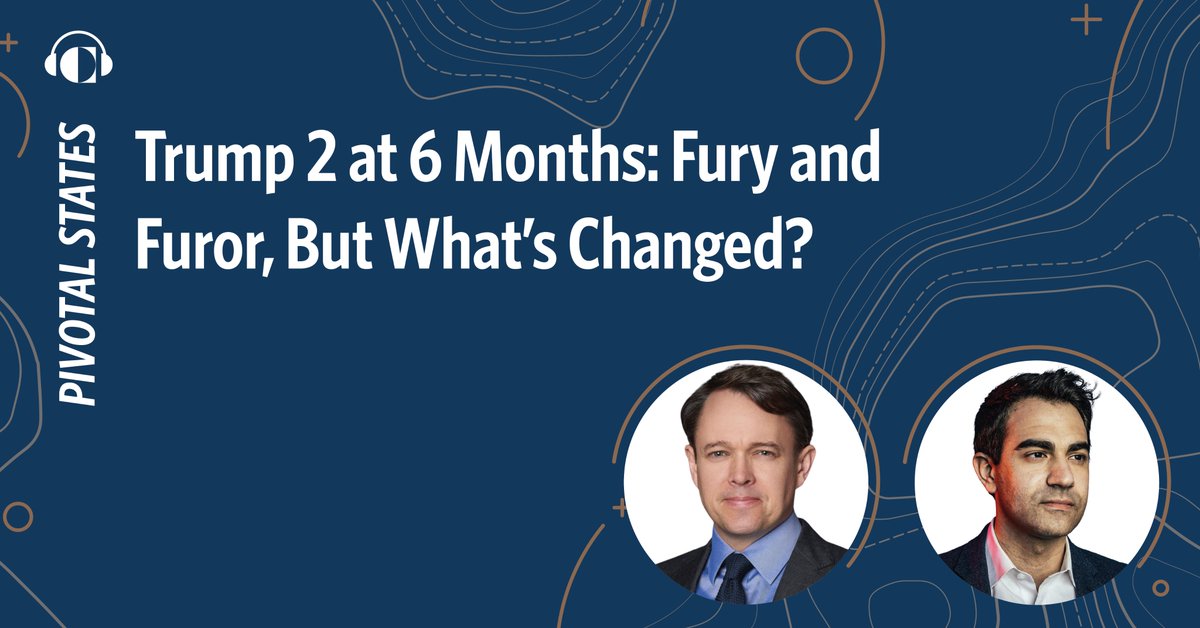
So true. "US domestic politics does not require leaders to pose as overzealous China hawks to win," writes @stephenwertheim -- Trump vowed to save TikTok -- Biden/Harris said they were the most tough-on-China Democrats since the cold war. They lost. ft.com/content/b324ad…
.@stephenwertheim considers the outlook for strategic competition between the United States and China: “In the world after Trump, a cold warlike posture will be both less warranted and less feasible.” ft.com/content/b324ad…
"If US-China competition intensifies further, fracturing the world into two separate economic and technological spheres, it may not be clear which side is 'containing' the other."
on.ft.com/46btyUb
▶️ We're live!! Tune in for a timely discussion on U.S.-Haiti relations, moderated by @ChrisShell95 : youtube.com/watch?v=NH-HTi…
Great fun to discuss Andrew Preston's important new book on the American origins of "national security."
🔴LIVE | Book Talk | Total Defense: The New Deal and the Origins of National Security A conversation featuring Andrew Preston, @stephenwertheim, @MarcusMStanley x.com/i/broadcasts/1…